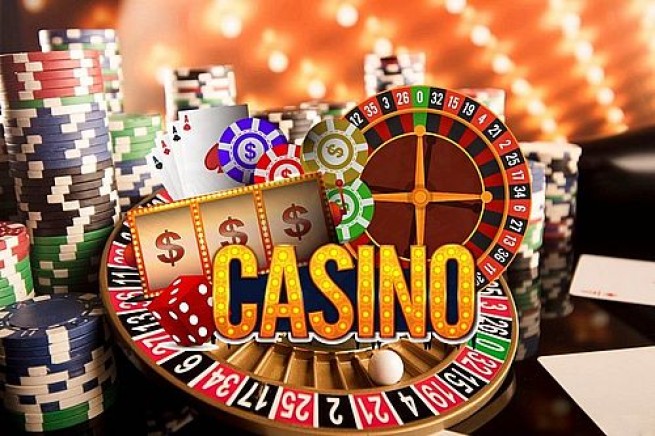
The Cultural Tapestry of Versus España
In the heart of the Iberian Peninsula, Spain stands as a vibrant mosaic of cultures, languages, and traditions that come together to form an intricate identity. This diversity is encapsulated in the concept of versus españa, a term that symbolizes the juxtaposition of various elements that shape the nation. From the passionately debated themes of regional identities to the celebrated artistry in all its forms, exploring the contrasts within Spain aids in understanding the soul of this remarkable country.
1. Historical Context: A Clash of Civilizations
The history of Spain is marked by the multitude of civilizations that have left their imprint over centuries. The Roman Empire, the Visigoths, the Moors, and eventually the Christian reconquest, each contributed to the multifaceted Spanish identity. The Reconquista period is particularly significant, as it not only shaped the nation’s religious landscape but also its cultural expressions. As Catholicism became the dominant religion, the remnants of Islamic and Jewish cultures were both celebrated and contested, leading to a unique tension that persists even today. The versus aspect of Spain’s history is evident in this clash and synthesis of cultures, which often manifests itself in debates over language, tradition, and national identity.
2. Language: A Multilingual Nation
One of the most apparent contrasts within Spain is the linguistic diversity. While Spanish (Castilian) is the official language and spoken by the majority, regional languages such as Catalan, Galician, and Basque also hold co-official status in their respective regions. This linguistic plurality often leads to a versus scenario, where advocates for regional languages argue for their preservation and promotion in education and public life.
The Catalan independence movement has particularly highlighted these linguistic divides. Many Catalans view their language as a cornerstone of their identity, fostering a sense of pride and distinction from the rest of Spain. Conversely, others see this drive for independence as a threat to the unity of the nation, showcasing how language can become a battleground for competing ideologies.
3. Culinary Traditions: A Tasty Showdown
Spain’s culinary landscape can also be seen through the lens of versus, with regional dishes that evoke fierce loyalty and rivalry among Spaniards. The quintessential paella, that hails from Valencia, often faces off against variations found in regions like the Basque Country and Galicia. While one faction may champion seafood paella, another may argue for a mixed or vegetarian version, each claiming their method as the “true” representation of Spanish cuisine.
Tapas culture, too, opens the floor for comparison. In Andalusia, the tradition of free tapas with drinks contrasts sharply with the more sophisticated tapas experiences found in urban centers like Madrid and Barcelona. Each region has its own take on what constitutes the perfect tapas, fueling discussions that elevate gastronomy to a fiercely adored art form in Spanish society.
4. Festivals: Celebration and Rivalry

The festivals of Spain are another fascinating realm where versus plays a critical role. Events like La Tomatina in Buñol and the Running of the Bulls in Pamplona embody iconic Spanish traditions, but they also contrast sharply with other regional celebrations. The Semana Santa (Holy Week) in Seville, characterized by its solemn processions, stands in stark opposition to the light-hearted celebrations of carnival in Cadiz.
Each region takes pride in its distinct cultural expressions during festivals, showcasing a lively contest of traditions celebrating not just the differences but also the rich tapestry of Spanish culture as a whole. These events serve as both a sanctuary for communal identity and a stage for public display of pride, further fueling the versus theme.
5. Artistic Expressions: Rivalry in Creativity
Spain’s contributions to art and literature are profound and varied, embodying a versus dialogue that transcends generations. The rivalry between Monumental artists such as Picasso and Dalí reveals how diverse styles coalesce, reflecting contrasting philosophies on life and modernity.
In literature, the dichotomy between the works of Cervantes and Calderón de la Barca highlights the tension of themes from the golden age of Spanish literature — adventure versus introspection, realism against idealism. The ongoing celebrations of these literary figures illustrate a continual dialogue, where their lasting impact serves as both competitors and complements within Spanish culture.
6. Sports Rivalry: The Passionate Showdown
Perhaps one of the starkest elements encapsulating the versus within Spain is the realm of sports, particularly football (soccer). The rivalry between FC Barcelona and Real Madrid — known as “El Clásico” — is more than just a match; it is a clash of ideologies, cultures, and identities. Each team symbolizes distinct regional values; Barcelona, with its Catalonian pride, versus Madrid’s Castilian grandeur, bringing the versus narrative to the forefront, where allegiance to one of the clubs often denotes deeper social, economic, and political alignments.
Conclusion: Unity Through Diversity
In conclusion, the concept of versus españa serves as an instructive lens through which to view the remarkable complexity of Spain’s identity. The cultural battles highlighted through history, language, culinary traditions, festivals, artistic expressions, and sports showcase a nation that thrives on its diversity. Instead of viewing these contrasts as divisions, they can be interpreted as a testament to Spain’s robust tradition of celebrating differences while fostering a collective national pride.
By embracing the versus, Spain not only acknowledges the richness of its cultural landscape but also sets a foundation for a more inclusive and harmonious society. As Spain continues to evolve, navigating these vibrant contrasts will remain essential in shaping its future identity.
